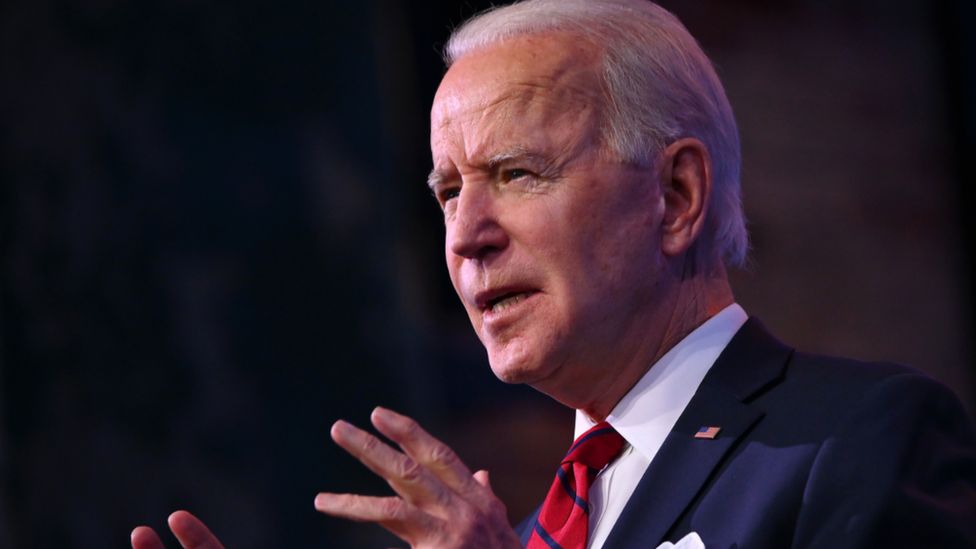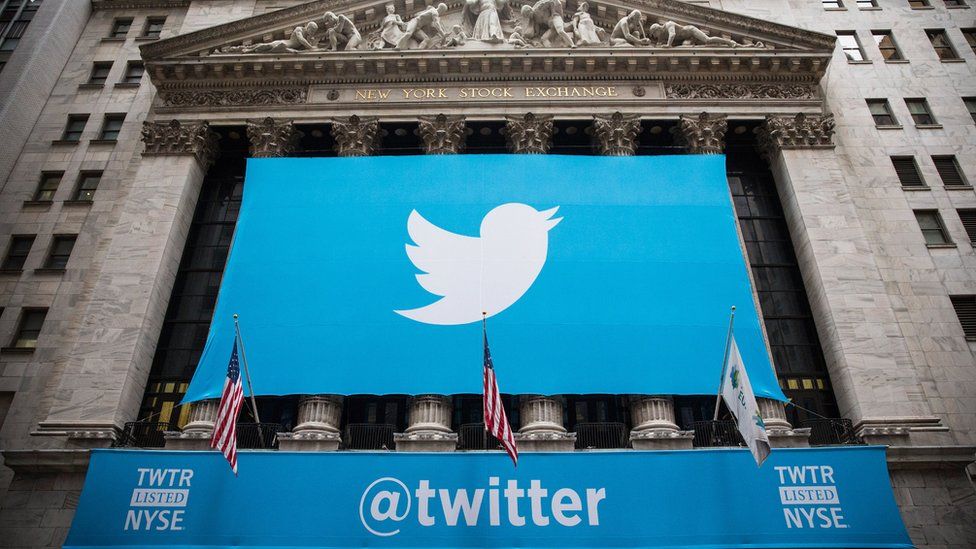The USA is the world’s foremost economic and military power, with global interests and an unmatched global reach.
America’s gross domestic product accounts for close to a quarter of the world total, and its military budget is reckoned to be almost as much as the rest of the world’s defence spending put together.
The country is also a major source of entertainment: American TV, Hollywood films, jazz, blues, rock and rap music are primary ingredients in global popular culture.
The United States originated in a revolution that separated it from the British Crown. The constitution, drafted in 1787, established a federal system with a division of powers that has remained little changed since its inception.
UNITED STATES OF AMERICA: FACTS
- Capital: Washington DC
- Area: 9,833,520 sq km
- Population: 333.2 million
- Language: English
- Life expectancy: 75 years (men) 80 years (women)
LEADERS
President: Joe Biden

Democrat candidate Joe Biden defeated Republican President Donald Trump to win the presidency in the 2020 election. A former vice-president with decades of experience in Congress, Mr Biden campaigned on a platform of promoting national unity after the divisive presidency of Mr Trump, a right-wing businessman, and re-engaging with international diplomacy.
MEDIA

The US has the most highly-developed mass media in the world. Its dramas, comedies, soaps, animations, music videos and films have a global audience and are staple fare for broadcasters worldwide.
Television is the most popular medium, although the amount of content consumed via live broadcast TV is falling as video-on-demand platforms flourish.
The US is the home of the internet, and access is unrestricted.
TIMELINE

Some key dates in US history:
1565 – First permanent European settlement in North America – St Augustine, present-day Florida – founded by the Spanish.
1607 – Jamestown, Virginia, founded by English settlers, who begin growing tobacco.
1620 – Plymouth Colony, near Cape Cod, is founded by the Pilgrim Fathers, whose example is followed by other English Puritans in New England.
17th-18th Centuries – Hundreds of thousands of Africans brought over and sold into slavery to work on cotton and tobacco plantations.
1775 – American Revolution: George Washington leads colonist Continental Army to fight against British rule.
1783 – Britain accepts loss of colonies in the Treaty of Paris.
1787 – Founding Fathers draw up new constitution for United States of America.
1803 – France sells Louisiana territories to USA.
19th Century – Resistance by indigenous peoples crushed as immigration from Europe assumes mass proportions, with settlers moving westwards.
1846-48 – US acquires vast tracts of Mexican territory in wake of Mexican War including California and New Mexico.
1861-1865 – US Civil War: Federal forces defeat the Confederate pro-slavery states in the South. Slavery is abolished.
1898 – US gains Puerto Rico, Guam, the Philippines and Cuba following the Spanish-American war. US annexes Hawaii.
1920 – Women given the right to vote.
1929-33 – Some 13 million people become unemployed after the Wall Street stock market crash triggers what becomes known as the Great Depression.
1933 – President Franklin D Roosevelt launches “New Deal” recovery programme which includes major public works.
1941 – Japan attacks the US fleet at Pearl Harbour in Hawaii, precipitating the US entry into World War Two.
1945 – US drops two atomic bombs on Hiroshima and Nagasaki. Japan surrenders.
1947 – US enunciates policy of aid for nations it deems threatened by communism in what became known as the Truman Doctrine. Cold War with Soviet Union begins.
1950-54 – Senator Joseph McCarthy carries out a crusade against alleged communists in government and public life; the campaign and its methods become known as McCarthyism.
1954 – Racial segregation in schools becomes unconstitutional; start of campaign of civil disobedience to secure civil rights for Americans of African descent.
1961 – Bay of Pigs invasion: an unsuccessful attempt to invade Cuba by Cuban exiles, organised and financed by Washington.
1962 – US compels Soviet Union to withdraw nuclear weapons from Cuba in what has become known as the Cuban missile crisis.
1963 – President John F Kennedy assassinated; Lyndon Johnson becomes president.
1964 – US steps up its military intervention in Vietnam. Civil Rights Act signed into law; it aims to halt discrimination on grounds of race, colour, religion, nationality.
1968 – Black civil rights leader Martin Luther King assassinated.
1969 – US astronaut Neil Armstrong becomes the first person to walk on the Moon.
1973 – Vietnam ceasefire agreement signed.
1989 – US troops invade Panama, oust its government and arrest its leader, one-time Central Intelligence Agency informant General Manuel Noriega, on drug-trafficking charges.
1991 – US forces play dominant role in war against Iraq, triggered by Iraq’s invasion of Kuwait and ending with the expulsion of Iraqi troops.
1995 – Oklahoma bomb by far-right activists kills more than 160 people.
1999 – US plays leading role in Nato bombing of Yugoslavia in response to Serb violence against ethnic Albanians in the province of Kosovo.
2001 – Co-ordinated suicide attacks on various high-profile targets by the al-Qaeda jihadist group, prompting the US to embark on a ”war on terror” that includes the invasion of Afghanistan and Iraq.
2003 – Missile attacks on Baghdad mark the start of a US-led campaign to topple the Iraqi leader Saddam Hussein. US forces swiftly advance into central Baghdad.
2008 – Turmoil in the US and international financial markets as major Wall Street investment bank Lehman Brothers collapses and other big US financial players face growing troubles as a result of the “credit crunch”.
Barack Obama is elected the first black president of the United States.
2016 – Reality TV host and property tycoon Donald Trump regains the presidency for the Republicans on a populist platform.
2021 – Joe Biden is inaugurated president amid unprecedented security, a week after Trump supporters stormed the Capitol in Washington DC.
Source: bbc


